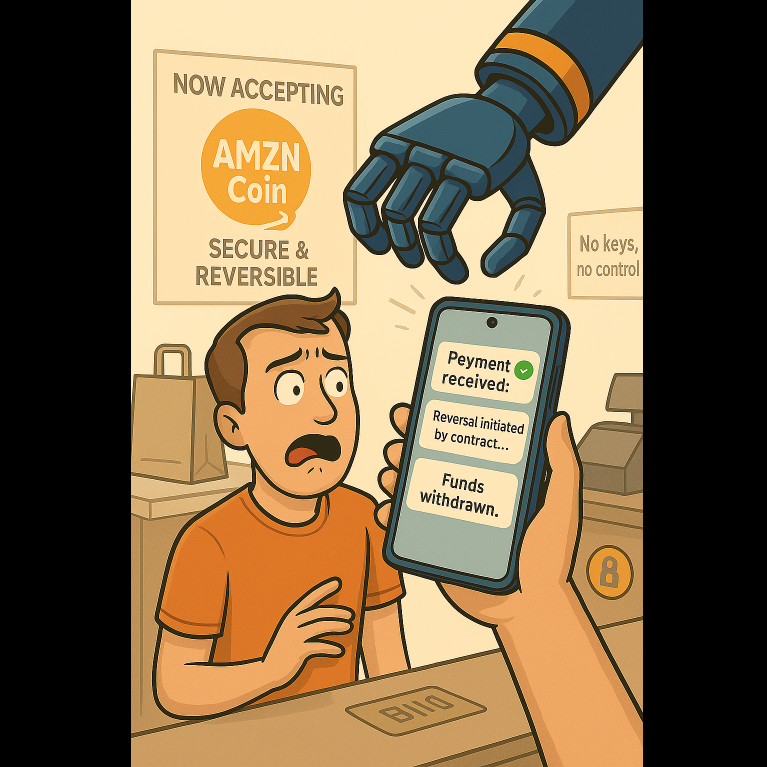
Retail stablecoins are coming?
There’s been a lot of talk lately about big retail players like Amazon and Walmart exploring the idea of launching their own stablecoins.
One point that really stuck with me came from Parrot Capital: stablecoins like these won’t be real competition to card payment networks because crypto transactions are final, while card payments can be reversed - and that matters a lot to buyers.
I agree with that, but I keep wondering: what’s stopping a stablecoin from being built in a way that allows reversibility? Why not design the smart contract so that tokens can only be sent to special “contract” addresses - addresses where not just the owner, but also the contract itself, can move funds?
Technically, this seems doable. It just hasn’t been tried yet. But big retailers could be the first to implement something like that.
In fact, I wouldn’t be surprised if other token issuers followed suit. And regulators? They’d likely welcome the idea - more control means more comfort for them. That’s the kind of crypto future I can imagine.
But don’t worry - today’s cryptocurrencies can’t be reshaped so easily. Bitcoin, Monero, Litecoin, and others simply don’t work that way. No smart contract can override your wallet.
No matter how the crypto landscape evolves, you can always head to rabbit.io and get one of these self-custodial coins - the kind that no contract can touch without your consent.













